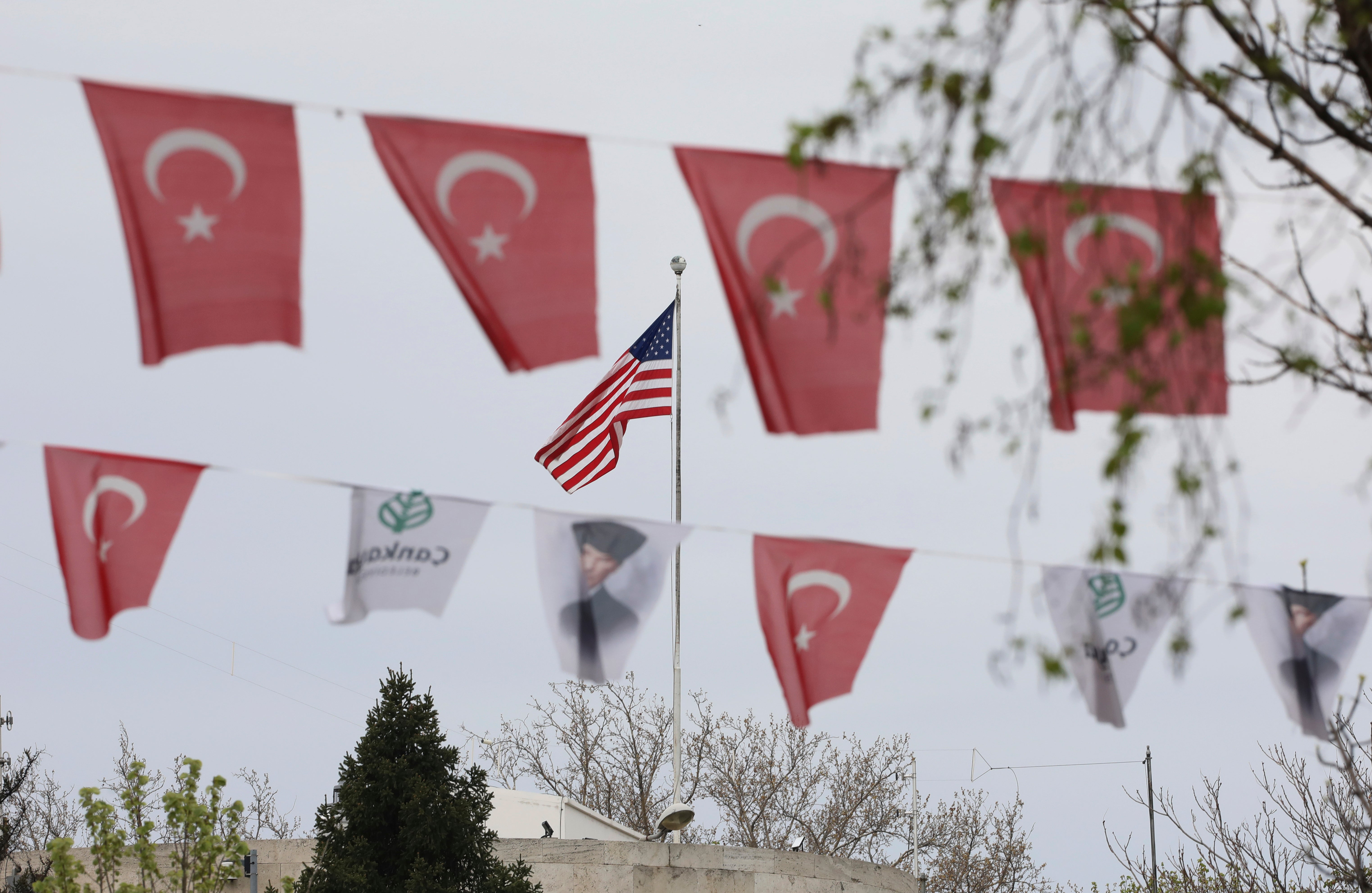Joe Biden’s Armenian genocide recognition offers healing but opens a Pandora’s box
Because the event took place before the 1948 Convention on Genocide was adopted, it opens up a can of worms, writes Borzou Daragahi. What other historical events can be categorised as genocides?


It is well past time for the world to fully recognise the horrifying, unspeakable things that happened in Anatolia more than 100 years ago. From the spring of 1915 to autumn of 1916, what was then the Ottoman empire’s vibrant and diverse ethnic Armenian population was murdered or forcibly displaced at the hands of uniformed armed forces acting on the orders of the most senior officials. There are numerous survivor accounts depicting starvation and massacres.
“There were thousands of bodies lying all around,” survivor Mihran Andonian recalled of the staging ground where he and his family had arrived after a gruelling death march through the desert.
“And by the time we got there, my family had perished,” he said in 1987 testimony collected by the University of Southern California Shoah Foundation. “The only ones that remained [were] myself and my mother and a sister, who was terribly paralysed.”
President Joe Biden’s official recognition on Saturday of the Armenian genocide is a historic milestone, and will perhaps offer a measure of healing to the descendants of the hundreds of thousands who perished or had their lives and fortunes completely uprooted by the events.
But because it refers to an event that took place before the 1948 Convention on Genocide was adopted, it also opens up a can of worms. What other historical events can be categorised as genocides? The American liquidation of the indigenous population? The Belgian massacres in the Congo? How far back should the reclassifications go? The Spanish Inquisition? The fourth-century extermination of the Wu Hu people by a Chinese warlord? The sacking of Carthage in the second century BC? And more importantly, what would such reclassifications imply? Court cases? Reparations?
“You can never convict a person for a crime that was not defined already,” says Muhamed Borogovac, the author of a book on the Bosnian civil war. “This opens up a Pandora’s box.”
Turks across much of the political spectrum are outraged. They have acknowledged for decades that atrocities took place in the context of the First World War, but have argued that they don’t measure up to the level of genocide.
“The said statement does not have a scholarly and legal basis, nor is it supported by any evidence,” Turkey’s foreign ministry said. “None of the conditions required for the use of the term ‘genocide’ that is strictly defined in international law are met.”
But many serious historians of the era, including those enamored of Turkey, acknowledge the Armenian genocide. Independent observers including foreign correspondents, diplomats, and missionaries contemporaneously confirmed the atrocities. More and more Turks are recognising the Armenian genocide as well, or at least not bothering to get defensive when confronted with the actions of their ancestors.
In fact, it was the mass murder of Armenians under Ottoman rule that prompted Polish lawyer Raphael Lemkin to come up with the term genocide as a distinct crime. “Genocide does not necessarily mean the immediate destruction of a nation,” he wrote. “It is intended rather to signify a coordinated plan of different actions aiming at the destruction of essential foundations of the life of national groups, with the aim of annihilating the groups themselves.”
The Dutch-Turkish scholar Ugur Umit Ungor, of the Institute for War, Holocaust and Genocide Studies in Amsterdam, has written two books detailing how the Ottoman-era dispossesion of the Armenians shaped contemporary Turkey. It began with a purge of civil servants, including police officers, firefighters, and teachers, ordered by the Ottoman authorities in 1914. Then came the infamous 24 April 1915 campaign of arresting and execution of Armenian elites and political leadership.
“These were extremely systematic,” Ungor says in a lecture posted to the internet. “There were lists of men to be arrested and executed. In a matter of weeks the complete elite of the empire was destroyed.”
A month later, the leadership ordered the complete deportation of the Armenian minority from Anatolia to the deserts of Syria, according to a document that Ungor uncovered. There they were left to starve to death.
“This in itself is a genocidal order,” says Ungor, author of The Making of Modern Turkey.
He describes the formation of the “Special Organisation”, tasked with systematically liquidating Armenian civilians, as well as campaigns of forced assimilation of Armenian children and women, as well as the destruction of the Armenian artifacts and cultural sites.
It’s not difficult to understand why Turks are resistant to the notion that their forebears were responsible for some of the worst crimes against humanity. Who wants to give up on the heroic icons of national history and go through the wrenching decades-long process of coming to terms with the dark ghosts of the past the way Germany has with the Holocaust?
America and Great Britain only pretend to have grappled with their various long list of historical crimes while continuing to celebrate their glorious pasts. France, Belgium, and other western European countries don’t even go that far. And many other nations around the world, including Russia and Indonesia, actually glorify rather than gloss over the atrocities of the past.
As in the case of America, a reckoning by Turkey is necessary. As the scholar Ungor emphasises, the Armenian genocide continues to shape policies and prejudices in Turkey, just as slavery and the mass exermination of Native Americans continue to have a lingering toxic impact on politics and society in the US.
Join our commenting forum
Join thought-provoking conversations, follow other Independent readers and see their replies
Comments